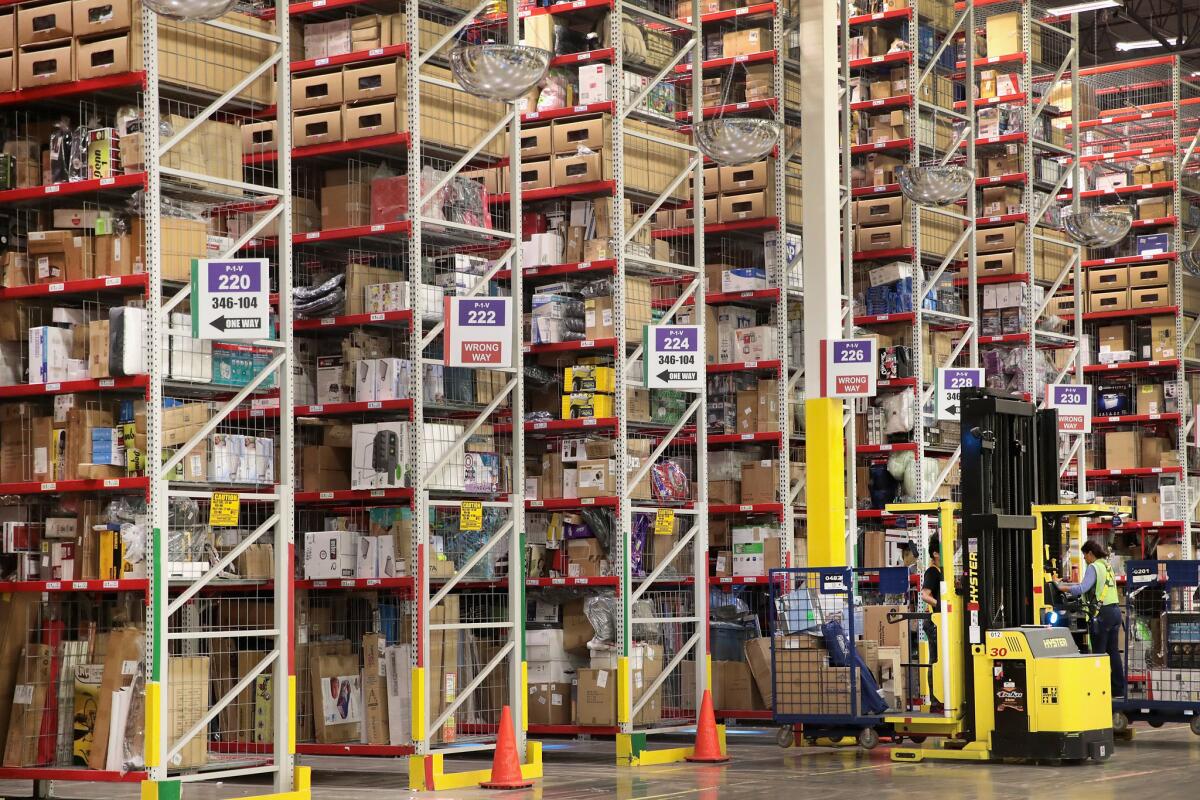Cyber Monday projected to hit pandemic-fueled $12.7 billion

Online shoppers in the U.S. are expected to drop a record-busting $12.7 billion on Cyber Monday — the busiest e-commerce day of the year — presenting a valuable opportunity for retailers whose websites, customer service departments and delivery operations can withstand the period of crushing traffic.
Amazon.com Inc., Walmart Inc., Target Corp., Best Buy Co. and others have been preparing for the 2020 holiday deluge for months. This week will be the ultimate test of their new investments in ramping up delivery capacity and adding features such as parking lot pickup for digital orders.
The coronavirus surge largely kept crowd-averse shoppers away from physical malls on Black Friday, reinforcing predictions that online shopping will soar this year. Adobe Analytics predicts that Cyber Monday spending this year will climb 35% — more than double the growth rate in the years prior to the pandemic.
Nearly 30% of Cyber Monday spending will happen between 7 p.m. and 11 p.m. Pacific Standard Time, when bargain-hunting shoppers finally pull the trigger, Adobe Analytics said in a statement Monday.
“Consumers will likely take advantage of the best discounted items today like TVs, toys and computers before price levels start creeping back up throughout the rest of the season,” said Taylor Schreiner, director of Adobe Digital Insights.
All that spending in a compressed time means that any service interruptions on Cyber Monday — slow websites, payment processing problems, shopping carts that vanish before checkout — could be painful for companies.
“Even large retailers could be crippled with the demand,” said Mario Ciabarra, chief executive at Quantum Metric, which helps online retailers fix website problems. “Every minute counts, and every customer counts.”
There were already signs that some online stores were struggling to handle the load. Sites for prominent retailers had 39% more errors on Black Friday than they did a year ago, according to Quantum Metric.
U.S. shoppers spent $9 billion online on Black Friday, according to Adobe Inc., missing its forecast of $10.3 billion, indicating shoppers reacted to deals earlier in the holiday season and warnings about potential shipping problems in December.
This year, retailers have been enticing people to shop earlier in the season to avoid capacity problems. But Cyber Monday probably will still be the peak, because many shoppers are conditioned to hold off on big purchases in anticipation of price cuts.
So far, Cyber Monday deals that have been announced aren’t much better than Black Friday deals, said Kristin McGrath, editor at BlackFriday.com, which monitors web deals. Harking back to traditional door-buster Black Friday tactics, many digital shops are likely to offer eye-popping discounts on popular products that usually sell out quickly to attract people to their site, hoping they linger and load up shopping carts with other things.
Shoppers may find the net result is underwhelming. “Amazon is offering the exact same deals on Echo speakers and some other devices as they did on Black Friday,” McGrath said. “Cyber Monday is not really the day to wait for anymore.”
Another reason that discounts may not be deep Monday is that customers would be mad if retailers that told them to shop earlier this year saved their best deals for Cyber Monday, said Andrew Lipsman, analyst at EMarketer. The upshot for retailers is the holiday season could be more profitable.
“There’s more room this year for retailers to take back some margin than in previous years,” Lipsman said. “Shoppers have heard about shipping problems and tight supplies, so if they see a good deal, they’re going to take it. There’s no reason to be greedy.”
More to Read
Inside the business of entertainment
The Wide Shot brings you news, analysis and insights on everything from streaming wars to production — and what it all means for the future.
You may occasionally receive promotional content from the Los Angeles Times.










